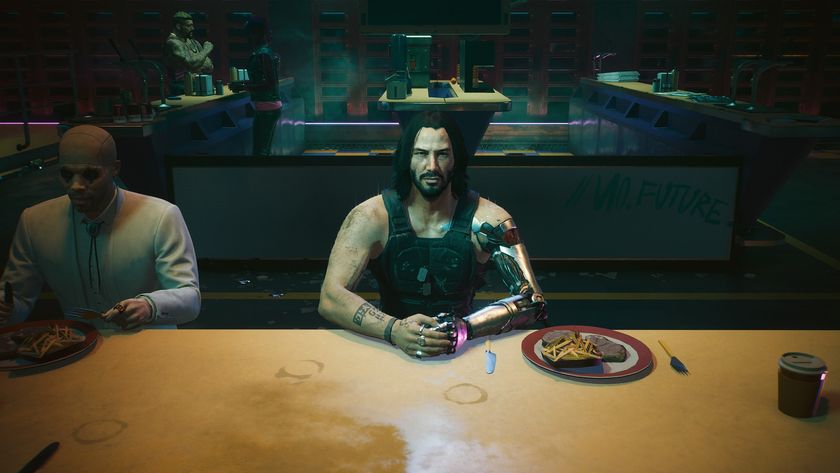INTERVIEW The Robots Are Taking Over!
Robopocalypse author Daniel H Wilson discusses the rise of our robot overlords (and gives his advice to new writers)...
Robopocalypse author Daniel H Wilson discusses the rise of our robot overlords (and gives his advice to new writers)...
When Steven Spielberg is committed to directing a novel based on one of your books, you've made it. That's the case with Daniel H Wilson's Robopocalypse , which also made fans of Stephen King and Clive Cussler. But Robopocalypse isn't Wilson's only bestseller - you may remember non-fiction fun like How To Survive A Robot Uprising and Where's My Jetpack? . His latest book is Robot Uprisings , an anthology of short stories he's editing. We caught up with the Oklahoma-born writer and quizzed him about his obsession with belligerent 'bots.
SFX : Why does the idea of a robot uprising fascinate you particularly?
Wilson: The novella I wrote for Robot Uprisings is called "Small Things" and it grew out of a paradox that I find fascinating: technology creates new worlds but it destroys the old ones. Robots in particular represent a massive potential for change and so they inspire incredible fear, but also incredible hope, for a better future. It's a process of creation and destruction that has created winners and losers since humankind began building and using tools. And this horrific process continues on its merry way in "Small Things."
SFX : How much is a machine takeover a real possibility in our future?
Wilson: Have no doubt, machines have already taken over. Humanity in its present state cannot survive without its technology. As our population grows and our impact on the planet increases and our problems become more complex — what do you think the answer will be? More machines. Stronger machines. Smarter machines. We are on our way.
SFX : What's it like having one of your books, Robopocalypse , being filmed by Steven Spielberg? What's your involvement been like?
Wilson: It's hard to convey the up and downs that come with having a novel bought by DreamWorks and set up with someone as legendary as Steven Spielberg. One minute, you're on top of the world, eating cookies with Spielberg and talking robots. The next minute, the film is delayed and you have to contemplate waking up from the best dream you've ever had. I'm convinced that the trick is to focus on your current project. Anything beyond that is just bonus points.
SFX : You write a lot about the interplay between science and science fiction – do you think science fiction can still tell us anything about where humanity is going, or are things moving so fast that it's impossible to predict our future?
Wilson: Science-fiction not only predicts the future, but it changes things. The human beings who are creating the future — scientists, as well as everyone who buys and uses technology — are inspired and terrified by the potential future scenarios explored in science fiction. But making a prediction about the future actually changes the outcome. I think we love science fiction because there is a part of our brain that likes to simulate possibilities. Sci-fi lets us try on different futures for size.
SFX : If you had one tip for aspiring science fiction writers what would it be?
Wilson: My advice is don't try to predict what people are going to like. Write what you like. Your natural enthusiasm and love for the subject will come through and make what you've written special. And if somebody else has a different opinion, well, they can write their own damn book.
Sign up to the SFX Newsletter
Get sneak previews, exclusive competitions and details of special events each month!
SFX : What project are you working on next?
Wilson: Robogenesis (the sequel to Robopocalypse ) is released on 10 June! It picks up seconds after the first book ends and continues the stories of my favorite characters. I tweet about it at @danielwilsonPDX or you can read more about it at my website: www.danielhwilson.com .
SFX : Thanks Daniel!
Daniel H Wilson is also roboticist with a PhD from Carnegie Mellon University, and also lectures on topics ranging from the interplay between science and science-fiction to robots in the military. The anthology Robot Uprisings is out now from Simon & Schuster . All of the contributors to this anthology of short stories – which includes bestselling, award-winning and up-and-coming writers – are well versed in the science behind robotics too .
Most Popular









